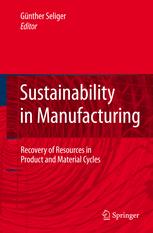

Most ebook files are in PDF format, so you can easily read them using various software such as Foxit Reader or directly on the Google Chrome browser.
Some ebook files are released by publishers in other formats such as .awz, .mobi, .epub, .fb2, etc. You may need to install specific software to read these formats on mobile/PC, such as Calibre.
Please read the tutorial at this link: https://ebookbell.com/faq
We offer FREE conversion to the popular formats you request; however, this may take some time. Therefore, right after payment, please email us, and we will try to provide the service as quickly as possible.
For some exceptional file formats or broken links (if any), please refrain from opening any disputes. Instead, email us first, and we will try to assist within a maximum of 6 hours.
EbookBell Team

4.1
30 reviewsFrom 1995 to 2006, the German National Science Foundation (DFG) has granted support for the collaborative research centre (Sfb 281) on disassembly factories for the recovery of resources in product and material cycles. Setting up economical and ecological criteria for life cycle engineering, developing software tools in design and planning for ease of disassembly and recycling, implementing processes and equipment for remanufacturing and logistics, and identifying enabling technologies for a change from cradle-to-grave to cycle economy have been essential pathes of research. The perspective of dramatic increase in global resource consumption exceeding ecological limits has continuously drawn initially mere manufacturing research into the reference frame of sustainability. Consequently increasing the use productivity of resources and the equity of wealth distribution among mankind as a global community have been identified as challenges for engineering to cope with.
This book is a kind of final report on Sfb 281 results gained in 12 years of research on sustainability in manufacturing at the Technical University of Berlin. This outcome is supplemented by selected contributions of external research partners from Brazil, China, Denmark, Japan and USA. New processes in remanufacturing as cleaning by laser and prototypical realizations of disassembly systems for different products e.g. washing machines, mobile phones or car engines are presented. The paradigm change in manufacturing from how to produce products most efficiently into how to avoid producing products while still maintaining customer satisfaction and corporate profits is addressed. Teaching and learning in a global university environment are identified as powerful means to overcome the barriers of established thinking habits in societal institutions thus coping with the challenge of sustainability.